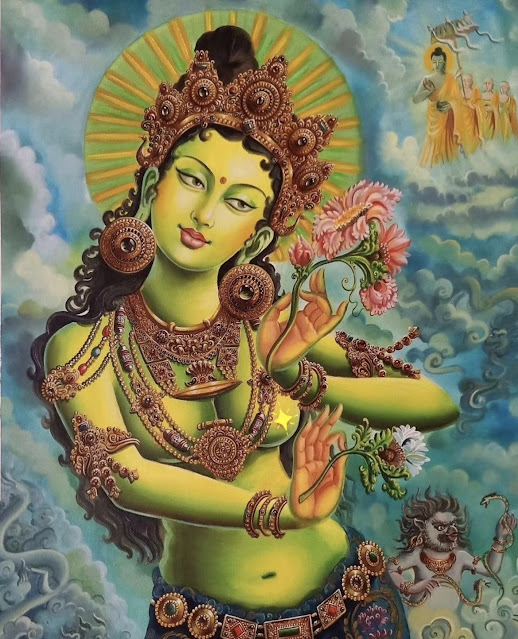"One night, when I was just about to sit down on the cushion, suddenly my body, mind, and world dropped away. At the same time, everything was present and clear. The filter of “me, I, mine” was gone. This extended into my daily life and interactions with people and events for over a month. Everything was ordinary, clear, and at peace, as if nothing was happening, yet everything was wondrous, connected, clear. Things moved but they were still; there was coming and going, but it was as if nothing had come or gone. Tasks were busily being done, but it was as if nothing was accomplished. There was no witnessing, no things, no tasks. Motion and stillness, coming and going, presence and absence were irrelevant. Responses to circumstances and things were distinct but without a reference point. Mind functioned freely when tasks required thinking, but ideas flowed without a thinker or self-consciousness. Mundane things like peeing made wonderous connections between the pee and the toilet, yet nothing had transpired. As for the Chan gong’ans (Jp. Zen koans), they became silly children’s books. There were no obstructions anywhere—obstruction and nonobstruction were irrelevant, too."
From Glimpses of Buddhanature in Lion's Roar, in the section by Guo Gu.
Sounds nice, I shouldn't be skeptical.
In another section of the article, I found this quote by Kokyo Henkel:
"I have come to see more and more how trusting in buddhanature can relieve discouragement in my own practice. By trusting that buddhanature is always present, even if seemingly obscured, it is always possible to practice and verify it. Our usual dualistic thought is like clouds seeming to obscure the vast clear sky of buddhanature, but occasionally there’s a little hole in the clouds, a glimpse of a small spot of clear sky. From that glimpse we can infer that there’s a huge unobstructed clear sky behind the clouds—and from the point of view of the sky, the clouds don’t even obscure it in any way. The sky has no problem with clouds floating through it, since the clouds are actually made of sky."
Another quote:
This peace so profound—this unpolluted, uncreated clear light—this nectar-like dharma I have found: to whomever I may teach it, it would remain enigmatic. So I will stay silent, keeping to the forest. (Lalitavistara, Sutra of the Panoramic Play)
Read the phrase "unconditioned Thusness" and I thought about Plato's forms. If Hericlutus can't step into the same river twice, Plato created unchanging forms. Unchanging forms aren't created or die, they have to be unconditioned. I found an article on Buddhism and Platonism.
Thought about a Deep Space 9 episode where a planet comes into phase, and goes out of phase, and the people exist as pure beings when it's out of phase. I also remember episodes of giant pure beings that accidentally harm a starship.
Thought about how monks feed Kukai every day on a shrine because he's in the Dharmakaya, even though he's been dead since the 8th century.
“The dharmakaya is not nonexistent because it is known in experiential fruit.” Sallie King Buddha Nature p.66.

























